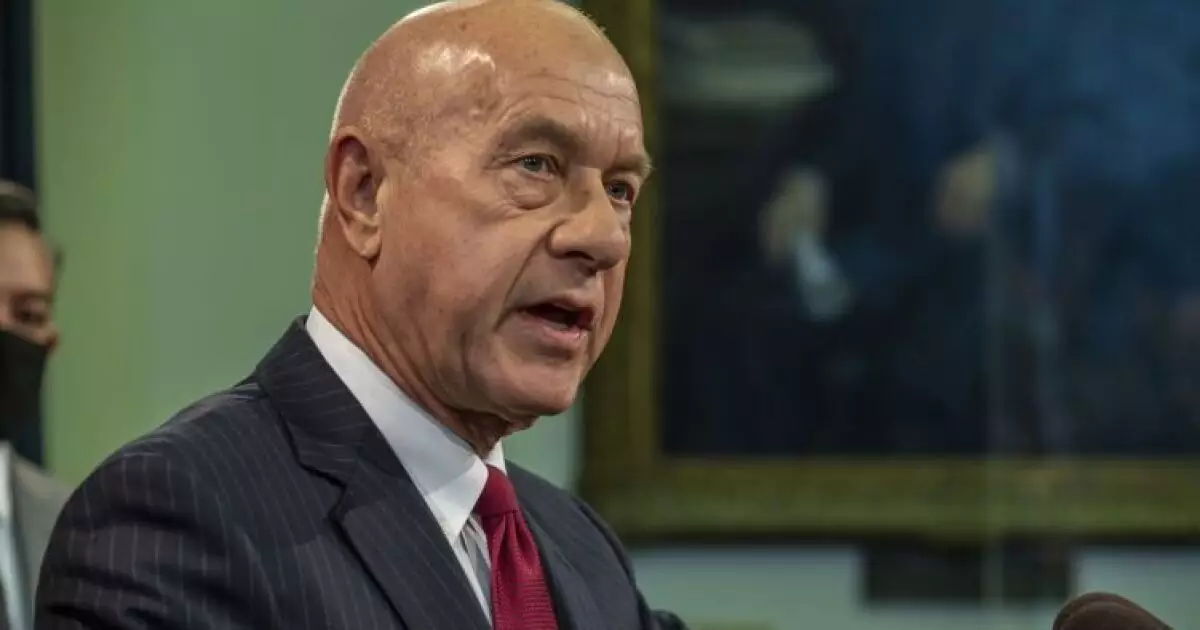Houston stands on a precipice, where legal battles are enforcing fiscal realities that no city should have to endure. The recent lawsuit mandating that the city shell out a staggering $100 million annually for drainage and road maintenance is not just a minor inconvenience—it poses a severe threat to the city’s overall financial health. Mayor John Whitmire, in his announcement, projected optimism, stating that addressing the significant structural budget deficit could be achievable through this legal settlement. However, beneath the surface of this rosy rhetoric lies a disturbing trend: our city is losing control over its financial autonomy due to litigation. It raises a vital question—how did we allow our infrastructure funding to be dictated by courtrooms and judges?
Political Reality and Budget Constraints
As the Houston City Council readies itself to vote on the agreement, high hopes for repairing our aging infrastructure come into play. Mayor Pro Tem Martha Castex-Tatum’s excitement is palpable, but the fact remains that such enthusiasm might be misplaced. Houston’s financial landscape is precarious; the anticipated budget shortfall of $320 million sends chills down the spine of any fiscally responsible citizen. Shrinking budget reserves, effectively diminishing the city’s capacity to invest in its future, have already drawn criticism from agencies like Fitch Ratings and S&P Global, which downgraded their outlook on Houston’s financial health. In the absence of sound fiscal management, the city risks slipping deeper into a quagmire of debt and ineffective governance.
Addressing the Root of Houston’s Infrastructure Challenges
The lawsuit indicates a broader issue: Houston’s infrastructure investment strategy appears reactionary rather than proactive. The transition of property tax revenue allocations—from an initial 57% to a projected 100% by fiscal 2028—too starkly highlights a reactive rather than preventive approach. Instead of waiting until crises like flooding or road failures make headlines, city officials need to formulate a comprehensive infrastructure strategy that anticipates needs and allocates resources wisely. It’s not just about making up for lost time and money but enacting policies that ensure the city has a robust system for addressing infrastructural decay before it snowballs into litigation.
The Potential for Legislative Relief
However, there may be hope on the horizon. The recent Texas bill that aims to allocate 30% of excess Harris County Toll Road Authority revenue to reimburse the city for public safety and emergency services presents a unique opportunity for financial relief. If utilized effectively, this influx could serve as a vital lifeline and help alleviate some burdens. Yet, this can’t merely be a stopgap measure; it must be part of a broader re-evaluation of how Houston manages its finances and infrastructure.
As Houston navigates this tumultuous financial landscape, the pressure will mount for leadership to prioritize sustainable solutions over temporary fixes. Moving forward, innovation and a balance between fiscal responsibility and community investment will be paramount. The proactive, center-right approach not only advocates for efficient government spending but also reaffirms the necessity for preemptive measures in urban planning and infrastructure management. Houston’s future hangs in the balance, and only through decisive and prudent action can the city hope to lift itself from this precarious state.

